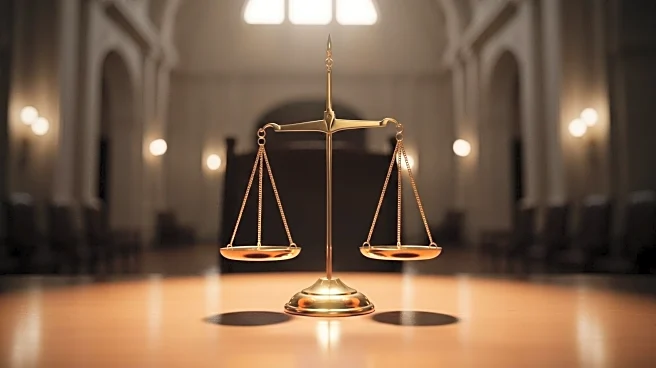What's Happening?
Health Secretary Robert F. Kennedy Jr. is set to testify before the Senate Finance Committee on September 4, amid significant leadership changes at the Centers for Disease Control and Prevention (CDC). The hearing, chaired by Senator Mike Crapo, will focus on the government's health agenda. This development follows the recent firing of CDC Director Susan Monarez, who was dismissed after refusing to support certain COVID-19 vaccine policy changes. Monarez's removal has sparked controversy, with her lawyers accusing Kennedy of politicizing public health. In response to Monarez's departure, Jim O'Neill, a political figure with no medical background, has been appointed as interim CDC director. The upheaval has led to the resignation of several high-ranking CDC officials, including Deb Houry, Daniel Jernigan, and Demetre Daskalakis, who have expressed concerns over the agency's direction under Kennedy's leadership.
Why It's Important?
The turmoil at the CDC and the upcoming Senate hearing are significant as they highlight the ongoing tensions between public health policy and political agendas. The firing of Susan Monarez and the subsequent resignations of key CDC officials could impact the agency's ability to effectively manage public health initiatives, particularly in relation to COVID-19 vaccine policies. The appointment of Jim O'Neill, who lacks scientific expertise, raises concerns about the future direction of the CDC and its commitment to evidence-based health interventions. This situation may affect public trust in the CDC and its leadership, potentially influencing vaccine uptake and public health strategies. The Senate hearing will provide a platform for addressing these issues and could lead to further scrutiny of Kennedy's role in shaping health policy.
What's Next?
The Senate Finance Committee hearing on September 4 will be a critical moment for Health Secretary Kennedy to address the concerns surrounding his leadership and the recent changes at the CDC. The hearing may lead to increased political pressure on Kennedy and the administration to clarify their health policy agenda and ensure that scientific integrity is maintained within the CDC. Stakeholders, including public health experts and political leaders, will be closely monitoring the outcomes of the hearing, which could influence future policy decisions and leadership appointments within the agency. The resignations of key CDC officials may also prompt discussions on how to restore stability and confidence in the agency's operations.
Beyond the Headlines
The recent events at the CDC underscore the complex interplay between politics and public health, raising ethical questions about the influence of political agendas on scientific decision-making. The departure of experienced health professionals from the CDC could have long-term implications for the agency's capacity to respond to public health emergencies and maintain its role as a trusted source of health information. The situation also highlights the challenges faced by public health leaders in navigating political pressures while prioritizing scientific evidence and public welfare. As the Senate hearing approaches, the broader implications for public health governance and policy-making will be a focal point of discussion.









